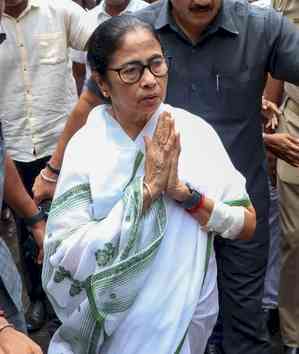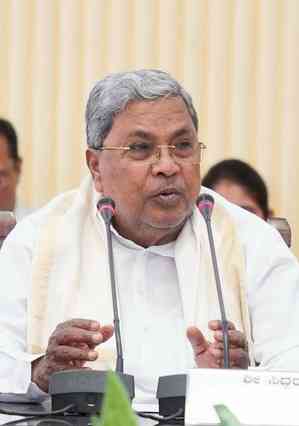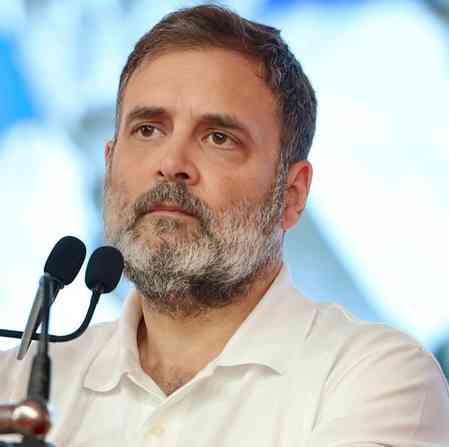Mamata congratulates Yunus for taking over as head of Bangladesh interim govt
West Bengal Chief Minister Mamata Banerjee, on Friday congratulated Nobel laureate Muhammad Yunus for taking over as the head of the Bangladesh interim government.

Kolkata, Aug 9 (IANS) West Bengal Chief Minister Mamata Banerjee, on Friday congratulated Nobel laureate Muhammad Yunus for taking over as the head of the Bangladesh interim government.
In a statement the Chief Minister also expressed hopes that the crisis in Bangladesh would end soon and peace would return to the neighbouring nation.
“My sincere congratulations and best wishes to Professor Muhammad Yunus and those who have taken up their duties in Bangladesh,” CM Mamata Banerjee said in the statement.
Expressing hope that India’s relationship with Bangladesh will improve in coming days, Mamata Banerjee said that she sincerely wishes for Bangladesh's development, peace, progress and betterment of people from all walks of life.
“My best wishes to everyone, right from students, youth, workers, farmers and women there. Hopefully, the crisis will end soon, peace will return. Let peace come back to this world of love of yours and mine. If our neighboring states are doing well, we will be doing well too,” the Chief Minister’s statement read.
Political observers say that Mamata Banerjee’s observations are crucial in the backdrop of two vital issues involving the bilateral relationship between India and Bangladesh.
The first is the renewal of the Indo-Bangladesh Farakka Treaty, 1996, which is set to expire in 2026 and the second is the Teesta Water Sharing Accord between the two countries.
The Chief Minister had been vehemently opposing the Union government’s stand on both these issues on the grounds that while the Farakka treaty will impact both West Bengal and Bihar, the Teesta Water Accord will severely impact the lives of the people in North Bengal.
In fact on June 24 this year, she wrote a letter to Prime Minister Narendra Modi requesting the latter not to take important bilateral decisions on these two crucial issues without involving the state government.


 IANS
IANS 










